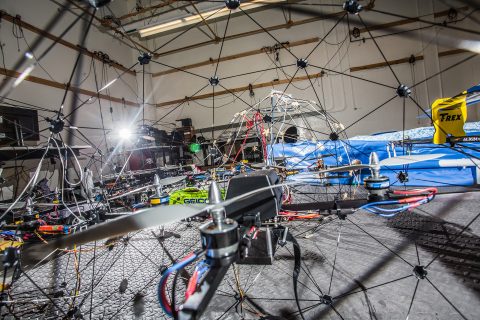Génie mécanique (MEng)
Présentation
La maîtrise (MEng) en génie mécanique est un programme axé sur les cours destiné aux ingénieures et ingénieurs en exercice qui souhaitent approfondir leurs compétences et accroître leur capacité à résoudre des problèmes technologiques complexes. Le programme donne accès à des laboratoires de pointe et des centres de recherche où sont menés des travaux sur la régulation industrielle, la conception de véhicules assistée par ordinateur, les matériaux composites et la mécanique des fluides numérique. Vous vous joindrez à un groupe diversifié de personnes étudiantes venant de tous les coins du monde, au sein d’un département de renommée mondiale qui vous aidera à mener vos recherches et où vous obtiendrez une formation à l’avant-garde de votre domaine. Les étudiantes et étudiants qui prévoient entreprendre un doctorat devraient plutôt s’inscrire au programme de MASc.
Structure du programme
Degree Requirements
The requirements described here are in addition to the general degree requirements for the Master/Magisteriate in Engineering (MEng) .
Fully-qualified candidates are required to complete a minimum of 45 credits.
Please see the Engineering Courses page for course descriptions and prerequisites.
Mechanical Engineering MEng (45 credits)
| 24 | credits minimum chosen from courses listed below: |
| 21 | credits minimum chosen from the elective courses listed below:
Engineering and Computer Science Courses
Mechanical, Industrial and Aerospace Engineering Courses
Project/Report (Prerequisite - Permission from Department is required)
or any 1-credit course within the GSPD 600 Professional Development Courses , or a course from Topic Area E09 - Professional Leadership Skills
|
Additional Notes:
|
Ce programme offre une option coopérative : un stage rémunéré à temps plein de quatre ou huit mois qui vous permettra de mettre en pratique les connaissances acquises en classe.
Conditions d'admission
(en anglais seulement)
Proficiency in English
Proficiency in English. Applicants whose primary language is not English must demonstrate that their knowledge of English is sufficient to pursue graduate studies in their chosen field. Please refer to the English language proficiency page for further information on requirements and exemptions.
Processus d'admission
Dates limites

AUTOMNE
1 juillet (citoyens canadiens)
1 mars (étudiants internationaux)

HIVER
1 novembre (citoyens canadiens)
1 juillet (étudiants internationaux)

ÉTÉ
1 mars (citoyens canadiens)
1 novembre (étudiants internationaux)
La priorité sera donnée aux demandes d’admissions complètes et soumises par la date limite. Dans certains cas, les programmes peuvent continuer à accepter les candidatures après la date limite de dépôt.
Étudiants internationaux: En raison des délais requis pour remplir les formalités d’entrée au Canada et au Québec, les étudiants internationaux sont fortement encouragés à présenter une demande d’admission et soumettre les pièces requises avant la date limite de dépôt.
Tuition & funding
Frais de scolarité
Les frais de scolarité du programme peuvent varier selon plusieurs facteurs clés comme votre statut d'étudiant. Estimez ces coûts selon les situations les plus fréquentes.
Bourses
Les bourses sont généralement disponibles pour les étudiants inscrits à un programme avec recherche ou thèse. Les étudiants qui suivent un programme à base de cours peuvent être éligibles à un certain nombre de bourses de donateurs et peuvent consulter leur département pour s'informer des opportunités spécifiques au programme.
Personnes étudiantes de l’extérieur de la province
Obtenez jusqu’à 3 000 $ en financement spécial pour les programmes de maîtrise sans mémoire. Détails
Autres programmes d'intérêt

Renforcez vos compétences en menant des recherches dans les domaines de la régulation industrielle, la conception de véhicules assistée par ordinateur, matériaux composites et la dynamique numérique des fluides.
Département
Département de génie mécanique, industriel et aérospatial
Faculté

